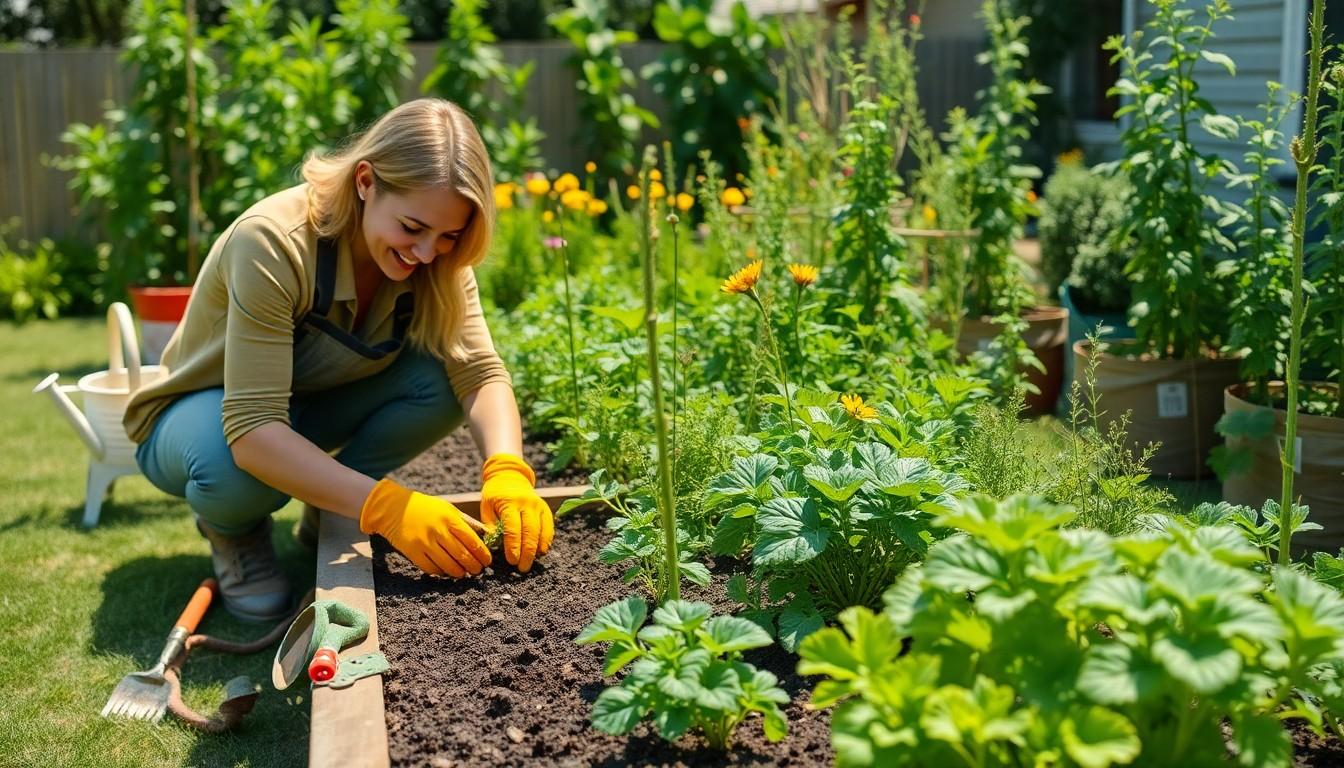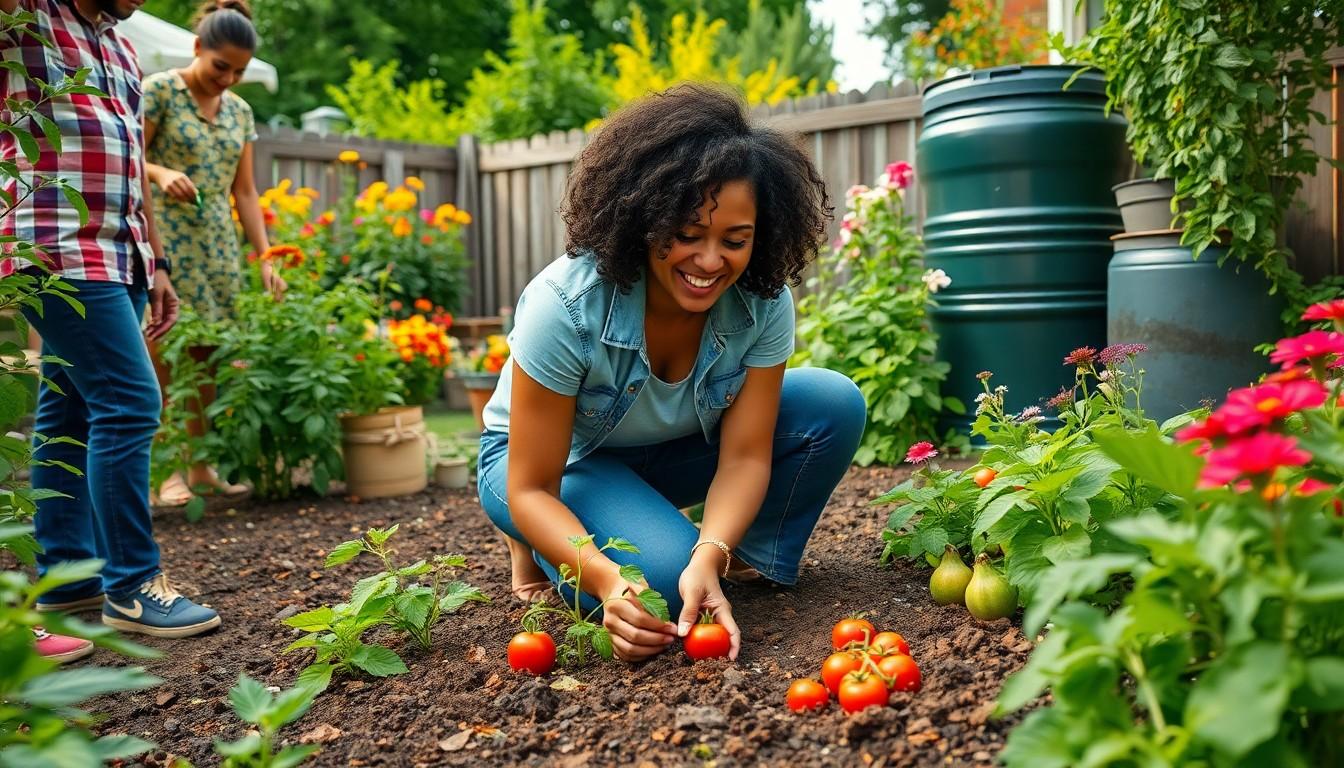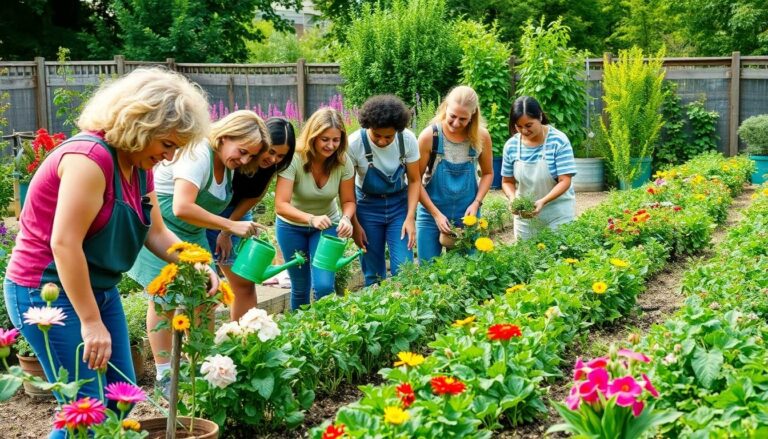Imagine stepping into your backyard and being greeted by a vibrant oasis of fresh vegetables, all grown with love and a touch of eco-friendly magic. A sustainable vegetable garden isn’t just a feast for the eyes; it’s a step toward a healthier planet and a tastier dinner plate. Who wouldn’t want to grow their own tomatoes, cucumbers, and maybe even a rogue zucchini that takes over half the yard?
sustainable vegetable garden
Sustainable vegetable gardens provide numerous benefits that extend beyond individual enjoyment. They support environmental health and improve personal well-being.
Environmental Impact
Sustainable vegetable gardens reduce the carbon footprint associated with food production. They promote biodiversity by supporting local wildlife and pollinators. Composting organic waste enriches soil, leading to healthier plants and less reliance on chemical fertilizers. Water conservation techniques, such as rainwater harvesting, optimize resource usage. Crop rotation and companion planting increase soil fertility while minimizing pests. These eco-friendly practices foster resilient ecosystems, making gardens more sustainable.
Health Advantages
Gardening activities encourage physical exercise, enhancing strength and flexibility. Fresh produce from sustainable gardens offers nutrient-rich options that support overall health. Consuming homegrown vegetables lowers the risk of pesticide exposure found in store-bought products. Mental health benefits arise from spending time outdoors and connecting with nature. Gardening fosters mindfulness and reduces stress through engaging, hands-on activities. Ultimately, sustainable vegetable gardens contribute significantly to a healthier lifestyle.
Planning Your Sustainable Vegetable Garden

Planning a sustainable vegetable garden requires careful consideration of various factors. This ensures a productive and eco-friendly space for gardening.
Choosing The Right Location
Selecting the right location plays a critical role in garden success. A sunny spot receives six to eight hours of sunlight daily, essential for vegetable growth. Well-drained soil prevents waterlogging, protecting plants from root rot. Accessibility simplifies maintenance tasks like watering and harvesting. Nearby water sources facilitate easy irrigation, which is vital for sustainability. Avoid areas with strong winds, as they can damage fragile plants. Finally, assess the proximity to existing plants and trees to avoid competition for nutrients.
Selecting Sustainable Seeds
Choosing sustainable seeds maximizes garden benefits. Heirloom seeds produce plants that yield nutrient-rich vegetables and support genetic diversity. Organic seeds, free from synthetic chemicals, promote healthier growth and reduce environmental impact. Local varieties adapt better to specific climates, ensuring resilience against pests and diseases. Seed saving encourages self-sufficiency, allowing gardeners to preserve and plant seeds year after year. Consider companion planting varieties that enhance growth and deter pests, creating a harmonious ecosystem in the garden. Ultimately, selecting seeds contributes significantly to a successful sustainable vegetable garden.
Soil Preparation And Improvement
Soil preparation and improvement are crucial for a sustainable vegetable garden. Proper soil enhances plant growth and promotes ecological balance.
Natural Fertilizers
Natural fertilizers offer numerous benefits for garden health. Organic matter, such as manure, seaweed, and bone meal, enriches soil fertility. Nutrients released from these materials support robust plant development. Using compost tea provides quick nutrient boosts without chemical additives. Rock minerals contribute essential trace elements, fostering diverse microorganisms in the soil. Applications of these natural fertilizers lead to healthier crops and better yields.
Composting Techniques
Composting techniques play a vital role in soil improvement. Layering green materials, like vegetable scraps, with brown materials, such as dried leaves, creates a balanced compost pile. Microorganisms break down organic waste into nutrient-rich compost. Turning the compost regularly aerates it, speeding up decomposition. Keeping the pile moist ensures decomposition remains active. Using finished compost as a top dressing enhances soil structure and provides continuous nutrient release. This sustainable method reduces waste and enriches garden soil simultaneously.
Water Management In Your Garden
Effective water management plays a vital role in maintaining a sustainable vegetable garden. Utilizing appropriate techniques ensures that plants receive adequate moisture while conserving resources.
Drip Irrigation Systems
Drip irrigation systems deliver water directly to the root zone of plants. This method minimizes water waste and reflects an eco-friendly approach to gardening. Emitters release water slowly, reducing evaporation and runoff, thereby enhancing efficiency. Consider using a timer to automate the system, allowing consistent moisture levels throughout the growing season. Benefits include healthier plants and reduced labor for watering.
Rainwater Harvesting
Rainwater harvesting captures runoff from roofs and stores it for later use. Setting up a rain barrel helps collect rainwater efficiently, providing a free and sustainable water source. This method conserves potable water while lowering water bills. Utilizing gathered rainwater promotes a closed-loop system that supports various garden needs, aligning with sustainable gardening practices. Ensuring the rainwater collection system is clean and properly filtered enhances its effectiveness for watering vegetables.
Pest Management Strategies
Integrating effective pest management strategies is essential for a sustainable vegetable garden. These strategies minimize chemical use and promote a healthy ecosystem.
Organic Pest Control
Organic pest control methods focus on using natural solutions to manage garden pests. Neem oil serves as a popular choice, acting as both a repellent and a treatment for various pests. Additionally, insecticidal soaps can target soft-bodied insects without harming beneficial species. Beneficial insects, such as ladybugs and lacewings, play a critical role in controlling pest populations, naturally reducing infestations. Regular monitoring of plants helps identify issues early, allowing for prompt remediation before significant damage occurs.
Companion Planting
Companion planting enhances natural pest control and promotes plant health. Certain plants, like marigolds, repel nematodes and other pests while attracting pollinators. Herbs such as basil and mint can deter unwanted insects when grown alongside vegetables. This method fosters a balanced ecosystem, benefiting both plants and soil. Additionally, planting specific combinations can improve nutrient uptake and enhance growth, making the vegetable garden more productive. Keeping a diverse range of plants encourages biodiversity, which further aids in pest management.
rewarding journey
Creating a sustainable vegetable garden is a rewarding journey that benefits both individuals and the planet. By embracing eco-friendly practices and fostering biodiversity, gardeners can enjoy fresh produce while contributing to a healthier environment.
The careful planning of garden space along with effective soil and water management ensures vibrant plant growth. Implementing organic pest control methods not only protects crops but also promotes a balanced ecosystem.
Ultimately, a sustainable vegetable garden is more than just a source of food; it’s a step toward a resilient lifestyle that connects people with nature. By cultivating this green space, one can experience the joy of gardening while making a positive impact on the world.




